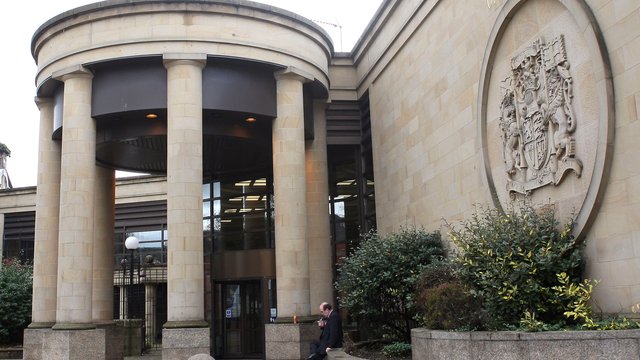On Air Now
The Capital Evening Show with Jimmy Hill 7pm - 10pm
19 December 2017, 12:03 | Updated: 19 December 2017, 12:05

Scotland's prosecution service is looking for victims of sexual crimes to give feedback on their experience of the judiciary, in an effort to improve the system.
It comes after Rape Crisis Scotland said findings of an Inspectorate of Prosecution in Scotland report were unacceptable, highlighting one survivor who described the court process as ''worse than being raped''.
The Crown Office and Procurator Fiscal Service (COPFS) is now working with the charity to gather anonymous feedback to tackle issues highlighted.
Lord Advocate James Wolffe QC said: "We cannot bring the perpetrators of sexual crime to justice unless victims come forward and speak up.
"That is why we value the work of Rape Crisis Scotland and other organisations which provide support to victims.
"That is why we have revised our own Victim Strategy and want to continue to improve the service which we provide.
"These arrangements for obtaining feedback from victims on a more systematic basis will help us to do that."
Feedback will cover, among other things, the way the process was explained, how information was shared and the person's experience in court.
Victims will also be asked if anything could have been done better by COPFS.
This information, only provided with the victim's consent, will be used to help identify ways COPFS can improve the service provided to victims of sexual crime.
The Lord Advocate and Sandy Brindley from the charity were to sign the memorandum of understanding on Tuesday at Edinburgh Rape Crisis Centre.
Ms Brindley said: "We are delighted to work with the Crown Office to develop a systemic approach to obtaining feedback from complainers.
"This is a very positive development, which will ensure that the experience and views of sexual offence complainers are fed directly into the prosecution process."
The inspectorate made 12 recommendations to the Crown in November, including increasing the standard and frequency of pro-active contact with victims, simplifying the language used in communications and ensuring a dedicated advice officer is allocated to each case.
It reviewed cases of High Court sexual crimes against a backdrop of an increase in the reporting of such crimes, but also a high rate of cases dropping out of the criminal justice system and a low conviction rate, particularly for rape and attempted rape.
Its work included focus groups with 16 victims of sexual crimes who had personal experience of the prosecution service and the criminal justice system.
The process was described by one participant as ''alien'' while another commented ''you need a law degree to understand what was going on''.
In its conclusion, the report said that the high number of victims who disengage ''infers that more could be done by the criminal justice system, in which COPFS is arguably the key organisation, to provide the necessary information and support to victims''.